Introduction
Moped vs motorcycle – Choosing between a moped and a motorcycle for your daily commute or weekend rides can be a significant decision influenced by factors such as experience, intended use, budget, and personal preferences. Both mopeds and motorcycles offer unique advantages and cater to different riding styles and needs. In this guide, we’ll explore the key differences between the two, helping you make an informed decision on which ride best suits you.
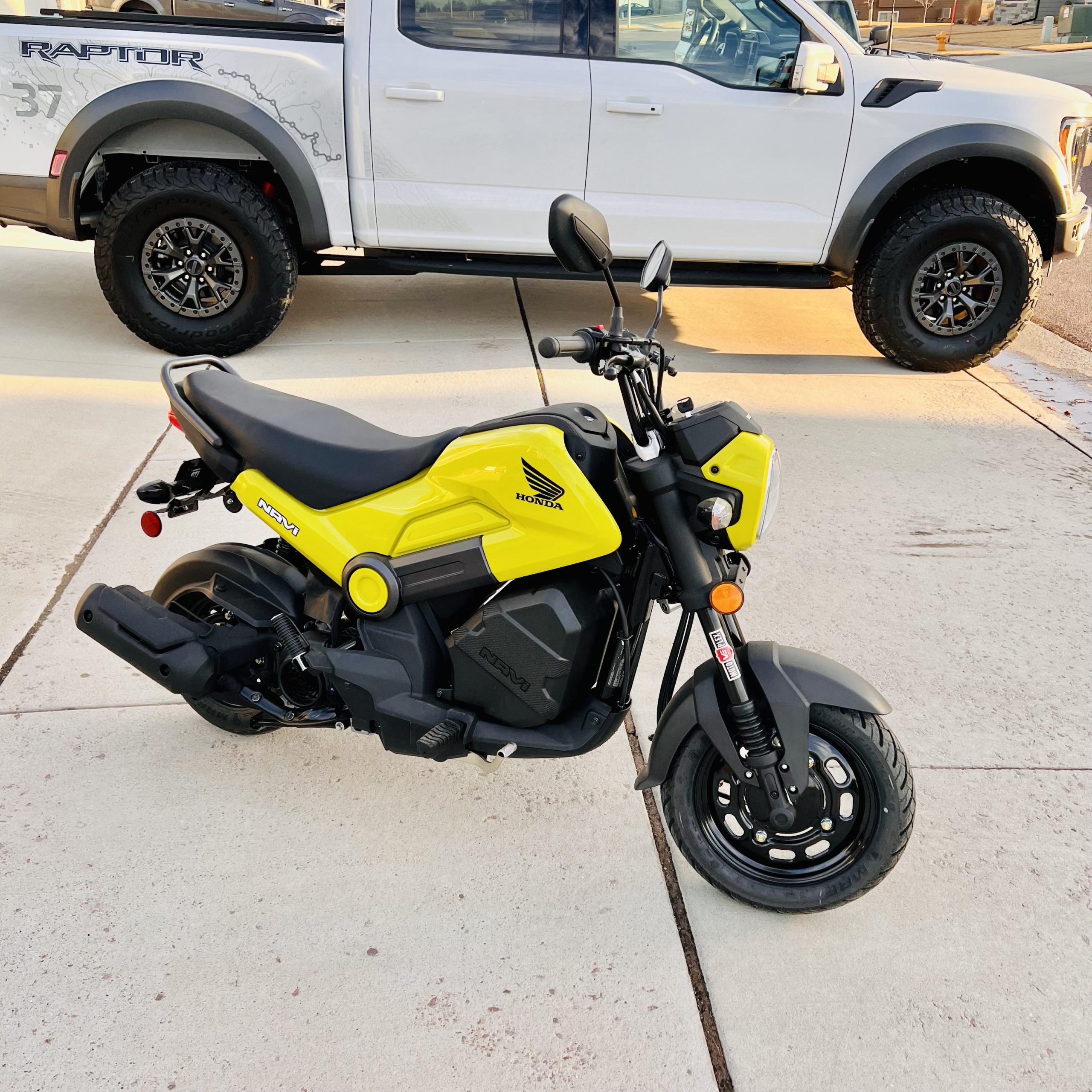
Mopeds: The Basics
Definition and Characteristics:
Mopeds, also known as motorized bicycles or scooters, typically have engines smaller than 50cc (in many jurisdictions), with a top speed usually not exceeding 30 mph. They often feature automatic transmissions, making them easy to operate, and are generally lighter and more compact than motorcycles.
Ease of Operation:
Due to their smaller size, lower power output, and automatic transmission, mopeds are often favored by beginners or those looking for a simpler, less intimidating riding experience.
Fuel Efficiency and Cost:
Mopeds are known for their excellent fuel economy, with some models boasting upwards of 100 miles per gallon. They also tend to be more affordable to purchase and maintain compared to motorcycles.
Licensing and Legal Requirements:
Licensing requirements for mopeds are generally less stringent than for motorcycles. In many places, a standard driver’s license suffices, eliminating the need for a separate motorcycle endorsement.
Motorcycles: The Thrill of the Open Road
Performance and Power:
Motorcycles come in a wide range of engine sizes, from 125cc entry-level bikes to powerful 1000cc+ sportbikes and cruisers. This variety offers a broader spectrum of performance capabilities, from commuting to long-distance touring and even high-speed racing.
Handling and Control:
With manual transmissions and more advanced suspension systems, motorcycles provide a higher level of control and maneuverability, allowing experienced riders to navigate challenging roads and enjoy a more dynamic riding experience.
Versatility:
Motorcycles are available in various styles—sportbikes, cruisers, adventure bikes, dirt bikes, etc.—each tailored to different riding styles and terrains, making them highly versatile machines.
Safety Considerations:
While motorcycles offer greater performance, they also require more skill to handle safely. Riders should invest in proper safety gear, including helmets, protective clothing, and boots, and consider completing a motorcycle safety course.
Factors to Consider When Choosing
Experience Level:
If you’re new to two-wheel riding, starting with a moped can be an excellent way to build confidence and skills before transitioning to a motorcycle.
Intended Use:
Consider where and how you plan to ride. Urban commuters may find mopeds more practical due to their size and ease of parking, while those seeking longer rides or highway travel might prefer a motorcycle.
Budget:
Mopeds are generally more affordable upfront and in terms of maintenance costs. However, if you’re willing to invest more for higher performance and features, a motorcycle could be worth it.
Licensing and Legalities:
Familiarize yourself with local laws regarding licensing and registration for both mopeds and motorcycles.
Personal Preferences:
Style, brand loyalty, and the desire for customization can also play a significant role in your choice. Motorcycles offer a broader scope for personalization and expression.
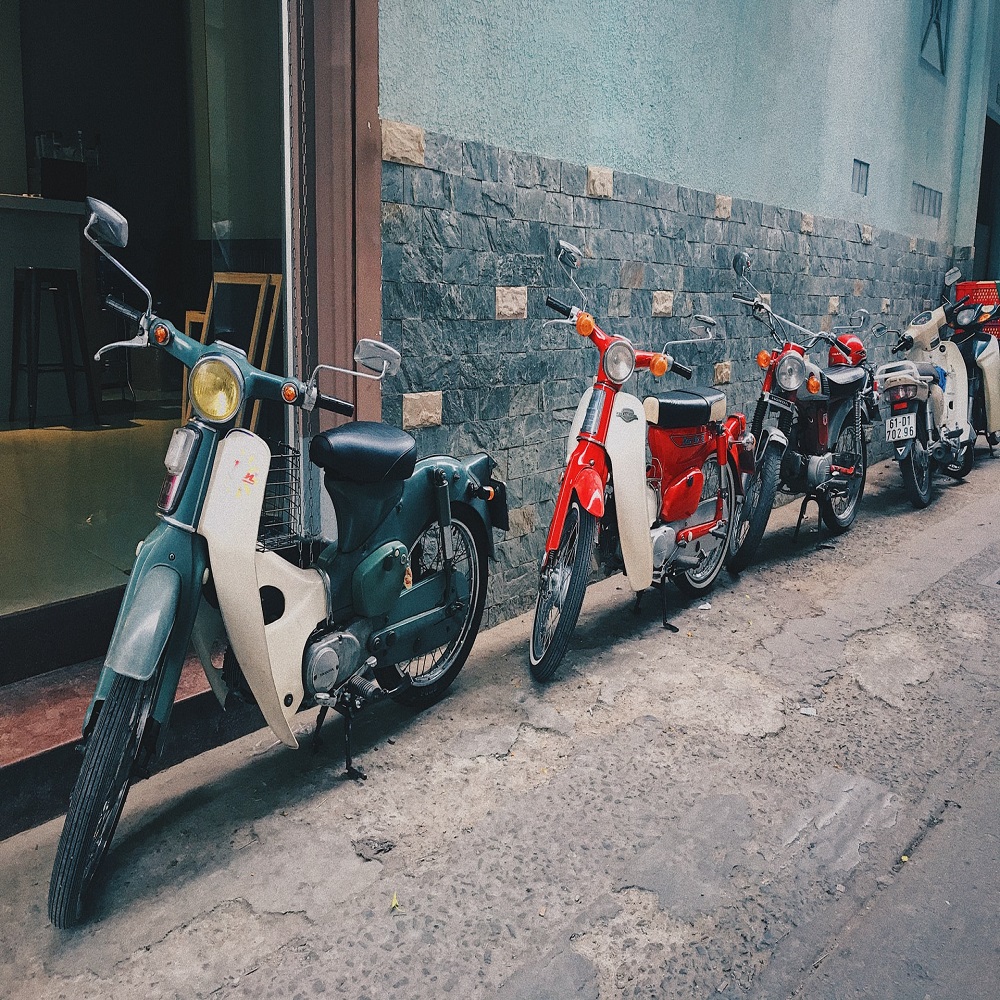
Moped Overview
Definition and Characteristics
A moped typically refers to a small, lightweight two-wheeled vehicle with an engine displacement usually below 50cc (for legal classification in many regions). It is designed for urban commuting and short-distance travel. Mopeds are known for their simplicity, ease of use, and fuel efficiency.
Advantages of Mopeds
- Affordability: Mopeds are generally more affordable than motorcycles, both in terms of purchase price and maintenance costs.
- Fuel Efficiency: With smaller engines, mopeds consume less fuel, making them economical for daily commuting.
- Easy to Ride: Mopeds are often automatic or have a simpler gearbox, making them easy to operate even for beginners.
- Parking and Maneuverability: Their compact size makes them easier to park and maneuver in congested urban areas.
- Legal and Licensing: In many regions, mopeds may be ridden with a basic driver’s license or even without one, depending on local regulations for low-powered vehicles.
Limitations of Mopeds
- Speed and Power: Mopeds are not designed for high speeds or long-distance travel due to their small engines and lightweight construction.
- Safety Concerns: They may offer less protection in the event of an accident compared to motorcycles.
- Limited Versatility: Mopeds are primarily suited for urban commuting and may not be ideal for longer highway journeys or rough terrain.
Motorcycle Overview
Definition and Characteristics
A motorcycle typically has a larger engine (above 50cc) and is designed for various purposes, including commuting, touring, sport riding, and off-road adventures. Motorcycles come in various types such as cruisers, sport bikes, touring bikes, and dual-sport bikes.
Advantages of Motorcycles
- Versatility: Motorcycles offer versatility for different types of riding, including long-distance travel, commuting, and recreational riding.
- Performance: Larger engines provide more power and higher speeds, offering better acceleration and handling capabilities.
- Comfort and Features: Many motorcycles come equipped with advanced features such as ABS brakes, traction control, and adjustable suspension for enhanced comfort and safety.
- Storage and Accessories: Motorcycles often have options for luggage storage, allowing for longer trips and carrying gear.
- Resale Value: Depending on the brand and model, motorcycles may retain better resale value compared to mopeds.
Limitations of Motorcycles
- Cost: Motorcycles can be more expensive to purchase and maintain than mopeds, especially for high-performance models.
- Complexity: Some motorcycles require more skill to operate due to manual transmissions and higher power output.
- Fuel Consumption: Larger engines generally consume more fuel than mopeds, affecting running costs.
Choosing Between Moped and Motorcycle
Considerations
- Purpose: Determine how you intend to use the vehicle—daily commuting, weekend recreation, touring, etc.
- Experience: Consider your riding experience and comfort level with operating motorcycles or mopeds.
- Legal Requirements: Check local regulations regarding licensing, insurance, and registration for both mopeds and motorcycles.
- Budget: Assess your budget for purchase, maintenance, insurance, and fuel costs.
- Comfort and Safety: Evaluate your preferences regarding comfort, safety features, and riding posture.
- Environmental Impact: Consider the environmental impact of your choice, especially with growing interest in electric motorcycles and eco-friendly commuting options.
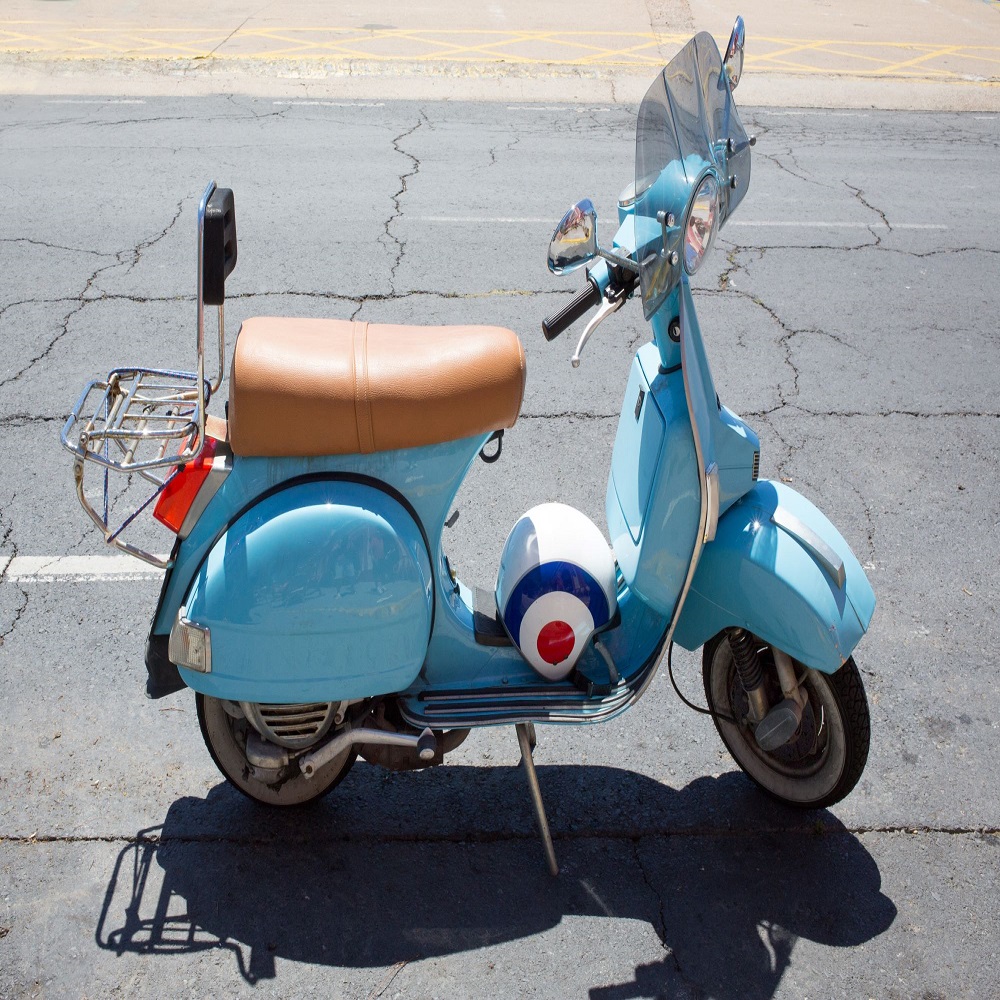
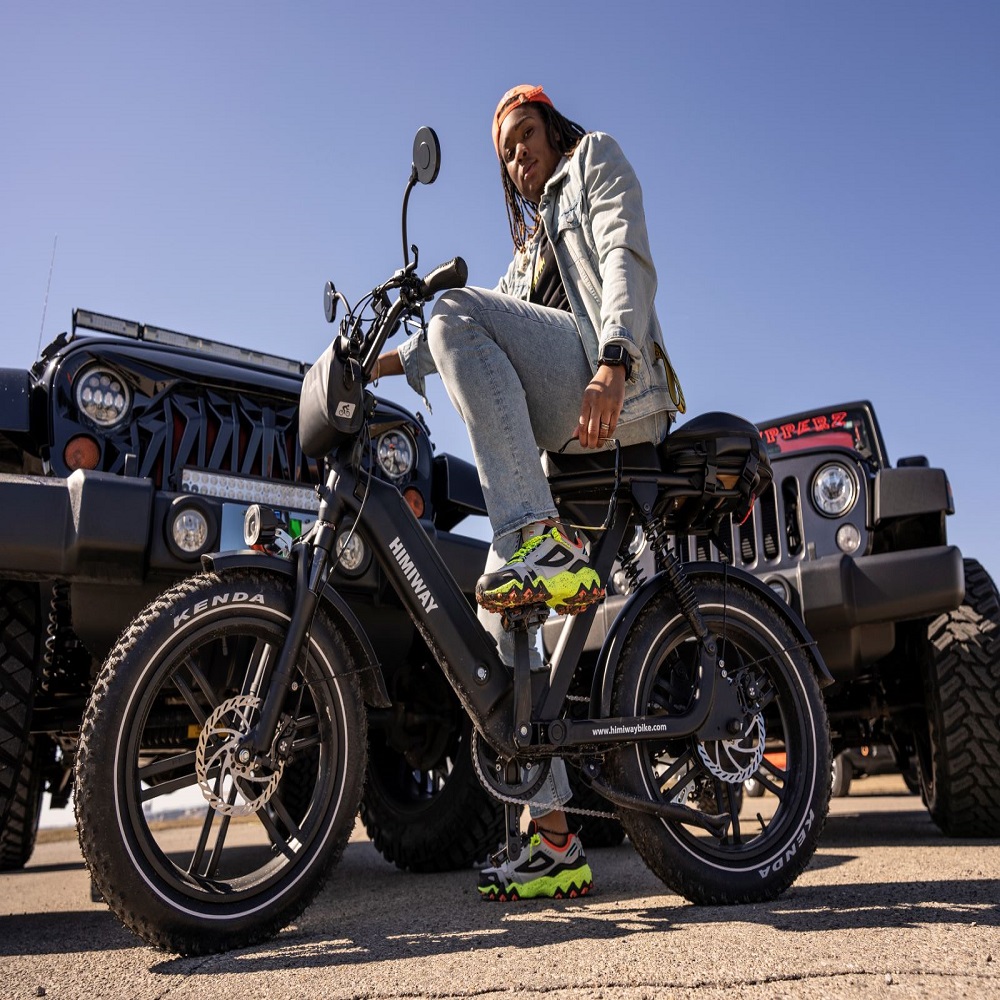
Environmental Impact and Future Trends
In today’s environmentally conscious climate, the ecological footprint of your ride is another factor to consider. Both mopeds and motorcycles are generally more fuel-efficient than cars, translating to lower carbon emissions per mile. However, the rise of electric alternatives in both categories presents an even greener option.
Electric Mopeds and Scooters:
Electric mopeds have seen a surge in popularity due to their zero-emission operation, quiet performance, and lower operating costs. They are particularly suited for urban environments where short-range commuting is the norm. Governments worldwide are incentivizing the adoption of electric vehicles, including mopeds, with tax credits, rebates, and dedicated charging infrastructure.
Electric Motorcycles:
Smilarly, electric motorcycles are gaining traction, offering impressive performance capabilities with instant torque and reduced noise pollution. Though generally pricier than their gasoline counterparts, advancements in battery technology are driving down costs and increasing range, making them a viable option for more riders. High-performance electric motorcycles can rival traditional bikes in speed and acceleration, attracting enthusiasts and environmentally aware riders alike.
Resale Value and Community
Another aspect to ponder is the resale value and the community surrounding each type of vehicle. Motorcycles, especially from reputable brands and in good condition, tend to hold their value better than mopeds. This can be a consideration if you anticipate upgrading or changing your ride in the future.
Additionally, both mopeds and motorcycles have their own communities of enthusiasts. Joining clubs, forums, or attending events can enrich your riding experience, offering opportunities to learn from others, participate in group rides, and foster friendships.
Insurance and Safety
Insurance premiums for mopeds and motorcycles vary based on factors such as engine size, rider experience, location, and model. Generally, mopeds with smaller engines may have lower insurance rates due to their lower perceived risk. Always compare insurance quotes before making a purchase decision.
Safety remains paramount regardless of your choice. Both moped and motorcycle riders should invest in high-quality protective gear, including a DOT-approved helmet, abrasion-resistant clothing, gloves, and sturdy footwear. Participating in a safety course can significantly improve your riding skills and might even lead to insurance discounts.
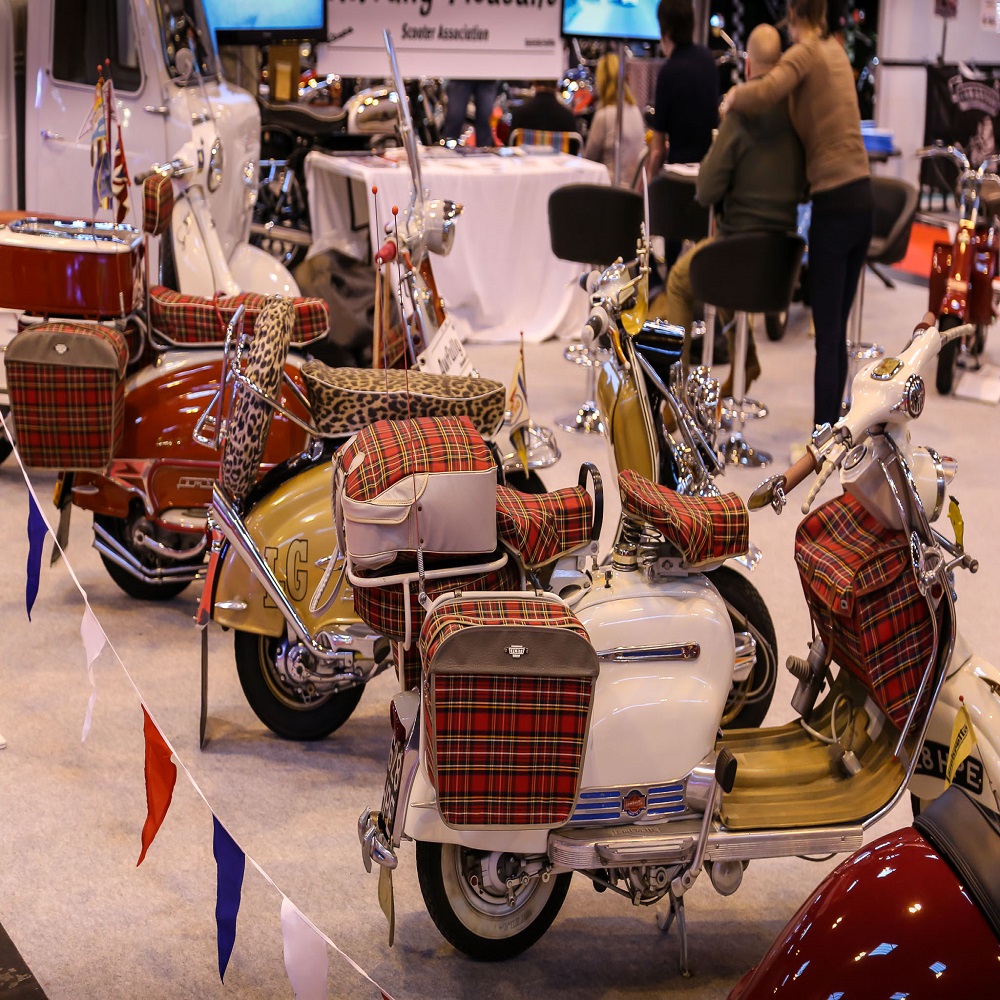
Conclusion
Ultimately, whether you choose a moped or a motorcycle depends on your individual needs, experience, and aspirations as a rider. Mopeds provide a user-friendly, cost-effective option ideal for city commutes and beginners, while motorcycles offer a wider range of performance and versatility for more experienced riders seeking adventure and thrill. Carefully weigh your options, consider taking a test ride if possible, and always prioritize safety to ensure a smart and enjoyable riding experience.

Leave a Reply